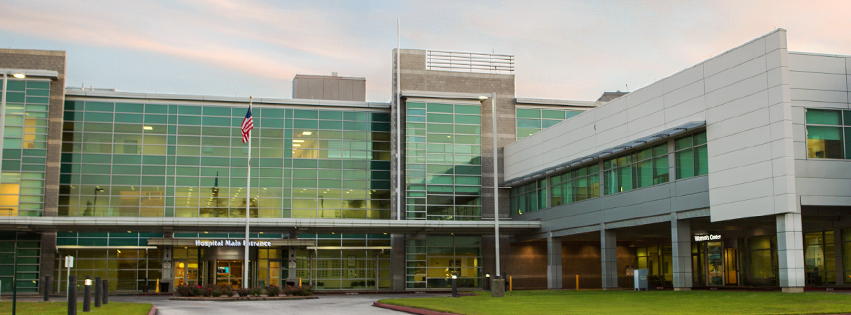
UPDATED: Injured football player ‘responding’, but still in critical condition
September 30, 2015
Alfreda Richoux
October 6, 2015As a regional university, it is Nicholls’ job to train its students for the jobs that are available and abundant in southeast Louisiana.
That obviously means that the oil and gas industry is a big piece of the four-year university’s plans – both now and into the future.
Nicholls sends hundreds of men and women into the workforce each year thanks to specialized curriculum that specialize in oil and gas training.
The university has a Petroleum Engineering Technology and Safety Management department, which has three unique degree programs. The Thibodaux-based college also offers a degree in maritime management, as well as marine biology – programs that deal directly with the oilfield, as well.
Dr. Bruce Murphy said that’s by design. He said that if Nicholls wasn’t doing its best to support the oilfield, it wouldn’t be operating to the best of its ability.
“I don’t have to tell you or anybody that oil and gas is a major, major player in our region,” Murphy said. “A large part of our job here is to meet the needs of our workforce. That’s why this university exists, so we definitely do our best to meet and train students to fit the needs that go along with that industry.”
PETROLEUM ENGINEERING TECHNOLOGY AND SAFETY MANGEMENT CRUISES ON
Murphy lauded Nicholls’ PETSM program – one that has been in existence for 40 years and running.
The university president said one of the best things that the 400-student program does is it creates flexible curriculum that allows folks already in the industry to stay on their current job while also getting the training and education they need to get a degree.
“We have 7-on, 7-off programs or 14-on, 14-off programs to meet the needs of those workers,” Murphy said. “Doing that gives us what I believe is a big advantage.”
Murphy said the program is “bursting at the seams.” Nicholls is doing construction work as often as it can to make classrooms wider and more spacious so that it can increase its number of students inside the program.
“Right now, we’re having to turn people away,” the university president said.
Nicholls PETSM executive director Michael Gautreaux said work is ongoing to upgrade facilities that are in the program – a four-phase plan that has already given the university three new classrooms. In the future, it will provide new laboratories, added classroom space and eventually a career and advising placement center that will be for graduates who are entering the oil and gas industry.
“The program has doubled in size over the last three years,” Gautreaux told The Times in August. “We are facing size and space limitations. … We’re working to fix that and take care of the large demand we receive.”
One way the university may get that help is through the support of the industry. Murphy said oilfield companies have always stepped up to support the PETSM program, because of the workers that it then trains and gives back to those businesses.
He said that he cannot yet mention names of specific companies who will pitch into the effort because the deal isn’t yet signed. But Murphy added that the industry leaders locally have been a huge factor in the program’s success.
“The businesses tell us that they have been very happy with our graduates,” Murphy said. “That’s great to hear as we continue to grow.”
KEEPING UP WITH TRENDS ALSO KEY
Keeping up with supply and demand is one thing. Keeping up with the trends in the industry is another.
Murphy said one of the biggest challenges that Nicholls faces is staying on top of industry trends to ensure that students are being trained in the latest and greatest techniques and technologies that they’ll need throughout their careers.
Those needs change – sometimes very quickly. That places the onus on the university to properly educate and train workers so that they can be ready for the demands that their jobs will present.
Louisiana Oil and Gas Association President Don Briggs said doing that is key and in his experience, Nicholls fits the bill nicely.
“We’ve changed so much,” Briggs said. “The ways in which things are much different today compared to how they were done five, 10 or 15 years ago. Workers who show up ready to go are always those who are preferred, and I think that our educational institutions have done a very good job in keeping up with the trends that have been going on throughout the industry.”
Murphy said Nicholls works close with the professional societies of each specific segment of the industry and uses input it gets from each to evolve and push forward.
The university also hosted a forum, inviting several industry leaders to campus to speak to students. That was during the beginning of the industry’s current downturn, and Murphy said the forum was a success because it gave advice to students on how to approach their careers and what to do if jobs aren’t available in abundance after graduation.
“It’s so important that students know the pulse of what’s going on in their career path,” Murphy said. “You can’t train someone for what was hot five years ago. You have to train them on what’s hot next year and the years beyond. We take pride in doing that.”
INDIRECT IMPACTS OIL HAS ON NICHOLLS
Murphy said the oil and gas industry also has indirect impacts on Nicholls.
The president cited the university’s business degree, which produces accountants, who often end up working in offices for oil and gas-related companies.
“Local CFO’s tell me all of the time that they may, for instance, have 25 accountants and 18 or 20 of those might be Nicholls graduates,” Murphy said. “So for us, that’s gratifying.”
Murphy also pointed to the fact that Nicholls also has a budding, healthy program for teachers, as well as for nursing – which directly impacts the families of folks who migrate to this region because of jobs in the oilfield.
“If the workers have a family, their children are likely to be taught by a Nicholls graduate – we educate most of the teachers in this area,” Murphy said. “If their child gets sick, we train most of the nurses in this area. All of that has an indirect impact on the oil and gas industry. You can’t forget those contributions. We’re doing a lot of things away from the actual industry itself that makes our community attractive to these people who are coming in and calling our area home.”
UNIVERSITY MONITORING TRENDS, BUT ALSO SEEING POSITIVE IMPACTS
Like anyone else in the community, Murphy said that he follows the news and keeps tabs on the price of oil.
But the recent downswing hasn’t yet touched Nicholls in an adverse way. In some ways, it’s actually had a little bit of a benefit.
Murphy said that we are currently in a period in Louisiana history where statewide funding for higher education isn’t there – even when the local economy is great.
“Things were being cut even when the price of oil was $90 a barrel,” he said.
But now that prices are lower, companies are far more picky about who they employ – some are even laying off workers to save money.
That has created a situation for Nicholls that is beneficial because obtaining a college degree is more valuable than it has been for quite a while in terms of oilfield jobs – a phenomenon that keeps pupils in Nicholls classrooms.
“We’ve seen people who got laid off come back to school to get their degree,” Murphy said. “We know that studies show that unemployment is far lower in graduates compared to non-graduates. We also know that those with degrees are best protected from these slowdowns and even when they’re laid off, they’re often the first ones who get called back.
“We follow the industry and keep tabs on it, but it doesn’t change a lot for us. We’re going to keep getting workers ready. Long-term, down the line, we know that our area will need those jobs, so we have to be ready.”














